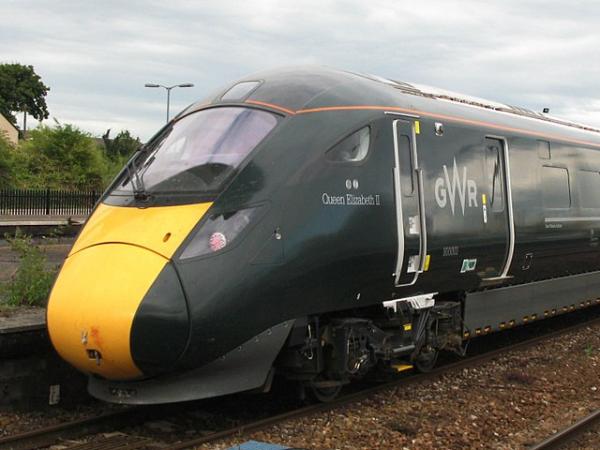Earlier this week Wales Online reported that train company Great Western Railway will not have Welsh language announcements or signs on its new class 800 fleet that will be providing services on the Great Western route from South Wales to London Paddington.

The lack of Welsh language announcements or signs on board was first spotted by Cardiff City Labour councillor and Welsh learner Phil Bale, who raised the matter with Great Western Railway via social media.
GWR responded to Cllr. Bale as follows:
I’m afraid we have no plans to have bilingual signage and on-board announcements on these services.
Diolch yn fawr, GWR!
The decision was justified by GWR remarking that the trains serve both England and Wales they aren’t a dedicated South Wales Fleet. However, as a patronising nod in the direction of Wales having a distinct language, GWR did point out that it had leaflets available in Welsh, but passengers would have to ask for them first (presumably in English. Ed.).
In response to GWR’s monoglot policy, Councillor Bales remarked: “For me it shows that Great Western are stuck in the dark ages. We have a Welsh Government target of one million Welsh speakers and there are international transport operators who manage to provide their services in different languages all across Europe.”
As the trains do serve both countries, one would have thought that providing bilingual announcements and signs would have been a common courtesy to those who speak Welsh; and as for Councillor Bales’ remark about running services in other countries, your correspondent doesn’t believe the travelling public overseas would tolerate the incompetence and sheer bloody-mindedness of GWR.
GWR’s attitude contrasts sharply with that of fellow train company, Arriva Trains Wales, which also runs services between Wales and England (e.g. from Cardiff Central to Manchester Piccadilly. Ed.). Arriva provides both signs and announcements in both Welsh and English, as well as bilingual ticket machines and timetables, even at English stations.
Plaid Cymru described GWR’s attitude as “disrespectful“, whilst a Cymdeithas yr Iaith (Welsh Language Society) spokesman said: “Ensuring bilingual signage and announcements on trains in Wales is a matter of basic respect for the Welsh language – there is no excuse not to. The fact GWR have said they don’t intend even to ensure these simple things, and that they’ve missed easy opportunities to do so, shows that they are not a suitable organisation to provide a train service in Wales.
“The Welsh Government should publish strong language standards in the transport sector so that the Welsh Language Commissioner can force companies like GWR to respect the language.”
According to the South Wales Argus, a Welsh Language Commission spokesman said: “Great Western’s alleged lack of investment in the Welsh language is a cause for concern.
“In 2016 the Commissioner submitted a report to the Welsh Government recommending that Welsh language standards should be placed on train companies. The Commissioner continues to work with train companies and others to develop the use of the Welsh language on a voluntary basis, and discusses public concerns with them.”